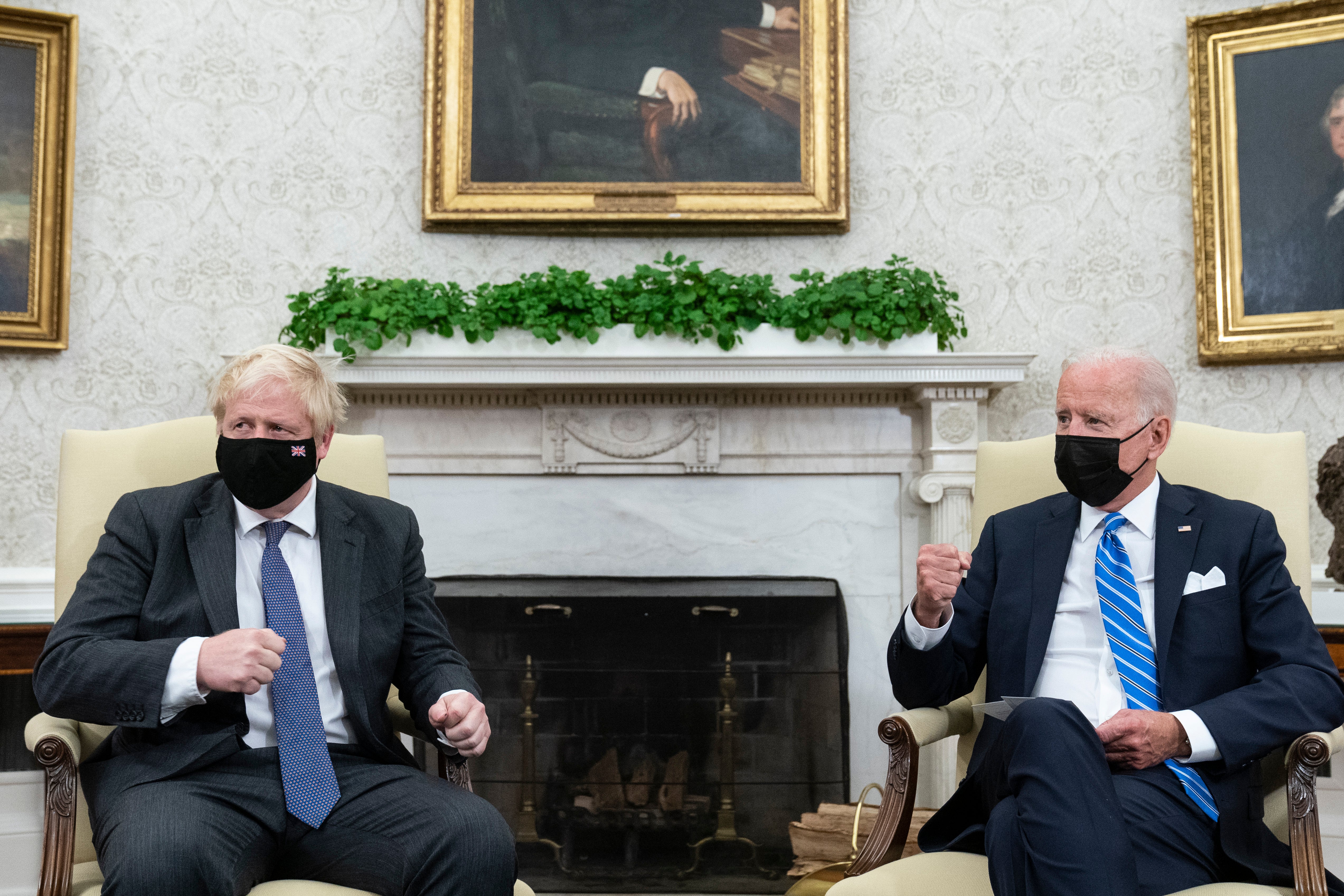There’s no US trade deal for Boris Johnson yet – and that’s just fine
The economic benefits of any pact were always going to be limited, and the UK would inevitably have to give up a lot to get them, writes James Moore


A shiny new US trade deal was hailed as one of the chief virtues of Brexit, but we can now add it to the pile of broken promises from the campaign to leave the EU.
President Joe Biden told Boris Johnson, in so many words, exactly what Barack Obama told the British people before the runaway Brexit train smashed into the buffers of reality: Britain is at the back of the queue.
That hasn’t stopped the government’s obsession with its white whale. It’s now changing the harpoon, considering an attempt to join the US-Canada-Mexico free trade deal that succeeded Nafta after Donald Trump tore up the latter.
Needless to say, the UK already has trade agreements in place with the latter two so it’s hard to see how this could be used as a backdoor way for the government to secure a US deal even if Nafta 2.0 was taking on new members.
That would, anyway, require Biden to say yay and it seems that he’s in no more hurry to do that than he is to sort out a bilateral deal.
Politically it’s a bad look. The economic calculus is somewhat different. Various analyses of a potential US-UK deal have been done. There was one conducted by the UK government which came up with a 0.16 per cent boost to GDP over 15 years.
That’s hardly exciting, especially when one considers what the UK would have to give up to get it, and that could be considerable. Just remember the environmental sacrifice that went with the recently signed UK-Australia deal.
The potential drawbacks of a US deal include surrendering food standards. American farmers would want to be able to export their hormone-treated beef and chlorinated chicken and without the “prejudicial” labels that would alert the British consumer to what they were buying. The entry of US health firms into the NHS is another concern. And a big one.
Given the limited impact on Britain’s prosperity, this is perhaps less of a white whale than it is an unhappy white elephant; a project driven by politics rather than prosperity. You could almost make the case that in saying no, Biden has done Britain a favour, albeit a backhanded one.
In part, that’s because the best way to improve Britain’s economic wellbeing – and goodness knows the nation needs that – would be for it to work to improve its strained relations with the EU and to make the weak agreement it currently has with the bloc function better for all concerned.
Brexit plays a role, and sometimes the major role, in a plethora of problems Britain has been experiencing including its soaring energy prices, the shortage of lorry drivers, the empty supermarket shelves that have followed, the threats to food security through a lack of CO2. We’re now even being told the quintessentially British festival of Bonfire Night is at risk thanks to a shortage of fireworks.
UK plc is being spun on a catherine wheel and everyone’s feeling queasy.
Ministers who are honest with themselves know this. But they are not yet willing to be honest with the public, and they are not yet willing to govern as grown-ups in Britain’s best interests.
This a belated victory of sorts for Guy Fawkes. Crazy times indeed.
Boris Johnson has meanwhile already sought to tear up the part of the EU trade deal covering Northern Ireland white flipping the bird to the French with the Aukus alliance between the UK, the US and Australia.
It seems fairly clear that things are going to get worse before they get better and that the economic fallout from Brexit will be raining down for some time to come.
It will do that even if the American white elephant performs a volte-face and comes charging into town with truckloads of chlorinated chicken and hormone-treated beef on its back.






Join our commenting forum
Join thought-provoking conversations, follow other Independent readers and see their replies
Comments